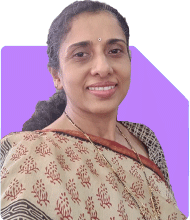42-year-old with 4.5 cr wants to retire at 60: What's the best strategy?
Ramalingam Kalirajan |6991 Answers |Ask -Follow
Mutual Funds, Financial Planning Expert - Answered on Jul 23, 2024
He has an MBA in finance from the University of Madras and is a certified financial planner.
He is the director and chief financial planner at Holistic Investment, a Chennai-based firm that offers financial planning and wealth management advice.... more

I am 42 and want to retire by 60, I have 10 lacs in MF, 10lac in equity, 50 lac in FD, 4cr in real estate land shops etc. I don't own a house. What should be my strategy from here my monthly expenditure is close to 2 lac.
You are 42 years old. You want to retire by 60. You have Rs. 10 lakhs in mutual funds. You have Rs. 10 lakhs in equities. You have Rs. 50 lakhs in fixed deposits. Your real estate investments are worth Rs. 4 crores. You don't own a house. Your monthly expenditure is Rs. 2 lakhs.
Assessing Your Financial Position
Mutual Funds:
Rs. 10 lakhs in mutual funds.
This provides potential for growth.
Equities:
Rs. 10 lakhs in equities.
This is good for long-term growth.
Fixed Deposits:
Rs. 50 lakhs in fixed deposits.
Safe but with low returns.
Real Estate:
Rs. 4 crores in land and shops.
Significant value but not liquid.
Monthly Expenditure:
Rs. 2 lakhs per month.
High living expenses.
Investment Strategy
Emergency Fund:
Keep at least 6 months of expenses.
This means Rs. 12 lakhs.
Diversify Investments:
Increase mutual fund investments.
Focus on large-cap and balanced funds.
Fixed Deposits:
Consider reducing FD amounts.
Reinvest in mutual funds for better returns.
Equities:
Continue with equity investments.
Diversify within sectors.
Real Estate:
Real estate is illiquid.
Consider selling some assets.
Reinvest proceeds in diversified mutual funds.
Retirement Planning
Calculate Retirement Corpus:
Aim for a substantial corpus.
This should cover post-retirement expenses.
Systematic Investment Plan (SIP):
Start SIPs in actively managed mutual funds.
This ensures disciplined investing.
Regular Review:
Review your portfolio every six months.
Adjust based on market conditions.
Benefits of Actively Managed Funds
Expert Management:
Professionals manage actively managed funds.
They aim to outperform the market.
Better Returns:
Actively managed funds often give higher returns.
They adapt quickly to market changes.
Disadvantages of Index Funds
No Outperformance:
Index funds mirror the market.
They can't outperform during good market phases.
Lack of Flexibility:
Index funds lack flexibility in volatile markets.
Disadvantages of Direct Funds
Complex Management:
Direct funds need more personal management.
Regular funds offer professional oversight.
Regular Funds Benefits:
Investing through MFD with CFP credential is beneficial.
They provide expert advice and management.
Owning a House
Consider Buying a House:
Owning a house gives stability.
It reduces future rent expenses.
Use Existing Assets:
Use some FD or real estate proceeds.
Fund the house purchase without heavy loans.
Tax Planning
Utilise Tax Benefits:
Invest in tax-saving instruments.
Reduce taxable income and save more.
Final Insights
To retire by 60, focus on diversified investments. Ensure an emergency fund. Increase mutual fund investments. Consider selling some real estate. Reinvest proceeds wisely. Buy a house for stability. Review your portfolio regularly. Consult a Certified Financial Planner for personalized advice. Stay disciplined and focused on your financial goals.
Best Regards,
K. Ramalingam, MBA, CFP,
Chief Financial Planner,
www.holisticinvestment.in
You may like to see similar questions and answers below
Ramalingam Kalirajan |6991 Answers |Ask -Follow
Mutual Funds, Financial Planning Expert - Answered on Jul 06, 2024
Ramalingam Kalirajan |6991 Answers |Ask -Follow
Mutual Funds, Financial Planning Expert - Answered on Jul 15, 2024
Ramalingam Kalirajan |6991 Answers |Ask -Follow
Mutual Funds, Financial Planning Expert - Answered on Oct 18, 2024
Anu Krishna |1285 Answers |Ask -Follow
Relationships Expert, Mind Coach - Answered on Nov 08, 2024
Dr Deepa Suvarna |129 Answers |Ask -Follow
Paediatrician - Answered on Nov 08, 2024
Anu Krishna |1285 Answers |Ask -Follow
Relationships Expert, Mind Coach - Answered on Nov 08, 2024
Milind Vadjikar |595 Answers |Ask -Follow
Insurance, Stocks, MF, PF Expert - Answered on Nov 08, 2024
Anu Krishna |1285 Answers |Ask -Follow
Relationships Expert, Mind Coach - Answered on Nov 08, 2024
Milind Vadjikar |595 Answers |Ask -Follow
Insurance, Stocks, MF, PF Expert - Answered on Nov 08, 2024
Kanchan Rai |398 Answers |Ask -Follow
Relationships Expert, Mind Coach - Answered on Nov 08, 2024
Kanchan Rai |398 Answers |Ask -Follow
Relationships Expert, Mind Coach - Answered on Nov 08, 2024
Kanchan Rai |398 Answers |Ask -Follow
Relationships Expert, Mind Coach - Answered on Nov 08, 2024
Kanchan Rai |398 Answers |Ask -Follow
Relationships Expert, Mind Coach - Answered on Nov 08, 2024























